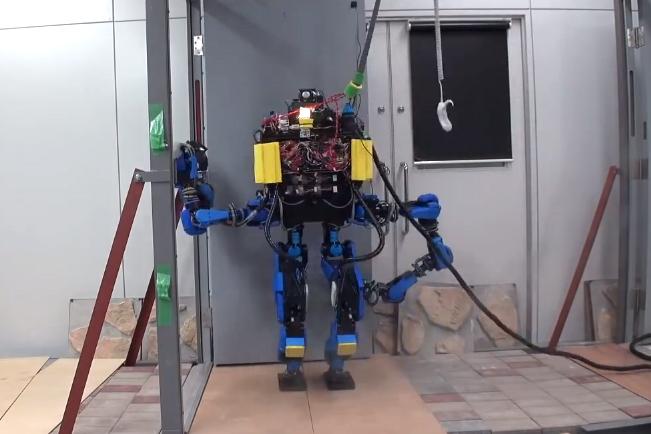
It was back in 2011 when we first heard that tech manufacturing giant Foxconn – well known for its work assembling Apple’s various iDevices – was looking to introduce somewhere in the region of a million robots to perform duties at its network of factories across China and beyond, though until now we hadn’t heard much about how the plan was progressing.
A Wall Street Journal report this week suggested the Taiwan-based company has actually been “quietly” working with Google on a number of robotics-based initiatives, with Foxconn boss Terry Gou meeting with Andy Rubin, the guy in charge of Google’s robotics division.
According to people apparently in the know, the talks focused on how to bring forward the introduction of robots to Foxconn factories, and also looked at ways of carrying out Google’s “vision for robotics” to help the US company more efficiently develop and test its robot-related technologies.
Gou “expressed excitement over new automation technologies demonstrated by Rubin,” the report said, while Rubin requested Foxconn’s assistance regarding mechanical engineering elements of Google’s various robotics initiatives.
For Foxconn, the collaboration could result in the mass introduction of robots at its vast number of manufacturing plants as it seeks to bring automation to the assembly line.
Google is well known to be taking an increasing interest in the field of robotic technology, evidenced by a slew of acquisitions over the last 12 months or so. In December, for example, the Mountain View company picked up robotic engineering firm Boston Dynamics, noted for its work on Petman, a humanoid robot, as well as its fast-moving four-legged Cheetah contraption. It also acquired Tokyo-based Schaft, the team behind the winning robot in December’s DARPA Robotics Challenge Trials in Florida.
Until March last year, Rubin was in charge of Google’s Android mobile operating system. Now head of the company’s robotics division, the WSJ suggests Rubin is planning to “build a new robotic operating system for manufacturers” that could ultimately revolutionize the industry.


